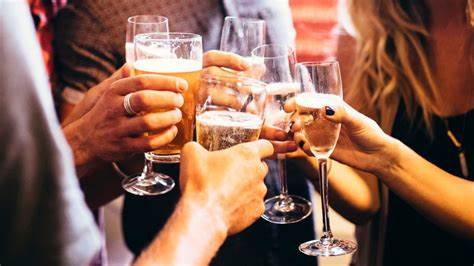Even before the pandemic began, some Americans were drinking significantly more alcohol than they had in decades past — with damaging consequences. In 2020, researchers at the National Institute on Alcohol Abuse and Alcoholism (N.I.A.A.A.) found that from 1999 through 2017, per capita consumption increased by 8 percent and the number of alcohol-related deaths doubled, many caused by liver disease. The trends are particularly concerning for women: Whereas the number of men who reported any drinking stayed mostly the same, the proportion of women who did so increased 10 percent, and the number of women who reported binge drinking, or consuming roughly four or more drinks in about two hours, increased by 23 percent. (For men, binge drinking is about five or more drinks in that period.) Current dietary guidelines consider moderate drinking to be at most one drink a day for women and two for men.

A growing body of research, however, has begun to confirm that Americans, and women in particular, are indeed drinking more in response to the pandemic. In December, researchers from Johns Hopkins Bloomberg School of Public Health and the University of Maryland, Baltimore County, published the results of a survey they conducted last May in The International Journal of Environmental Research and Public Health. They found that of the more than 800 respondents — those who replied to the online questionnaire were mostly white women — 60 percent were drinking more compared with before Covid-19 (13 percent were drinking less). More than 45 percent of participants said their reasons for drinking included increased stress. And those who reported feeling "very much" or "extreme" stress from the pandemic reported drinking more on more days than those who were less affected. Another survey conducted this February by the American Psychological Association found that nearly one in four adults reported drinking more to manage pandemic stress. Though stress has long been a common reason people turn to alcohol, the extent to which it appeared to cause increased consumption during the past year was startling, says George Koob, director of the N.I.A.A.A. "It shouldn't have been a surprise, but it did surprise us, this drinking to cope."
译文由可可原创,仅供学习交流使用,未经许可请勿转载。













